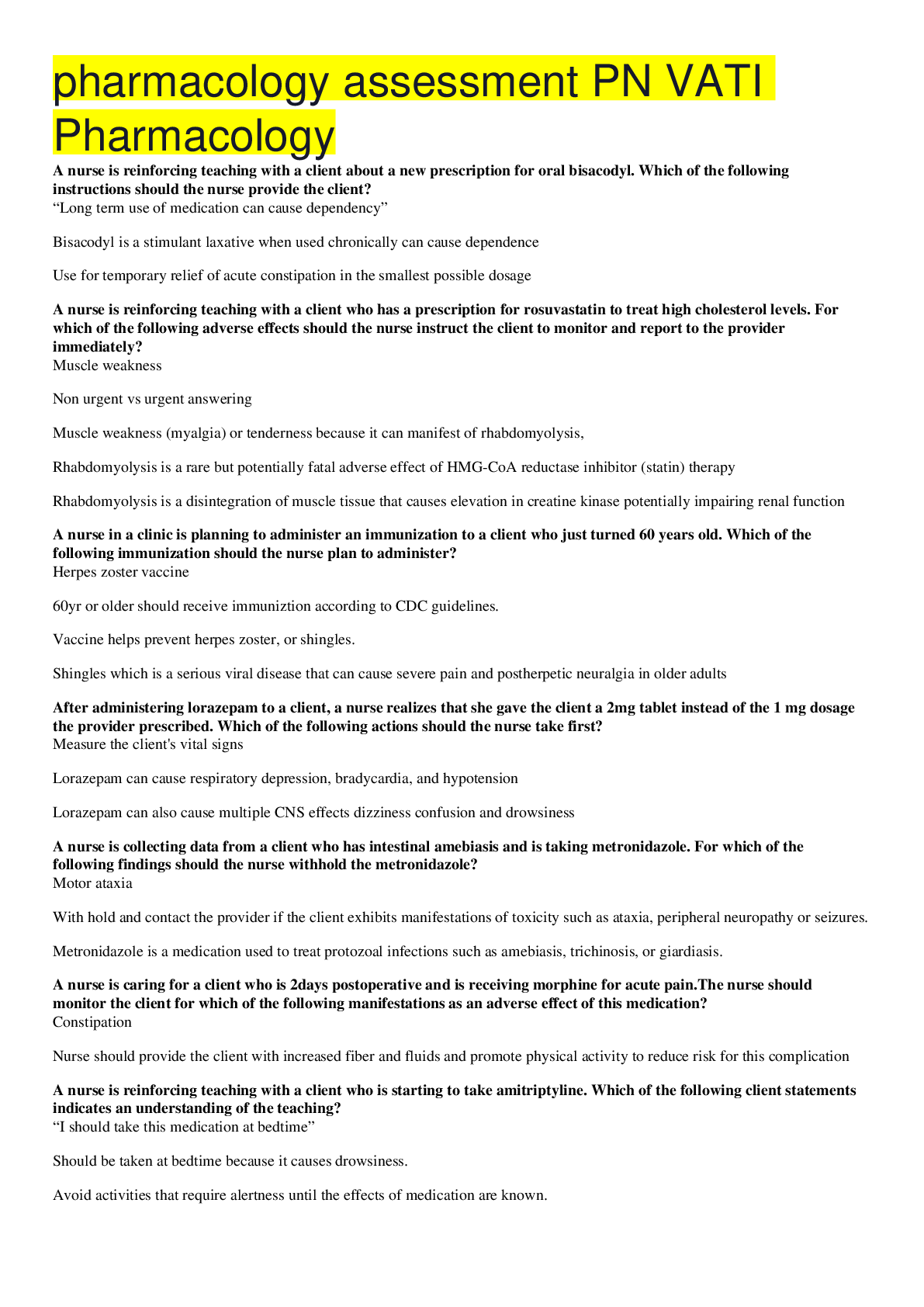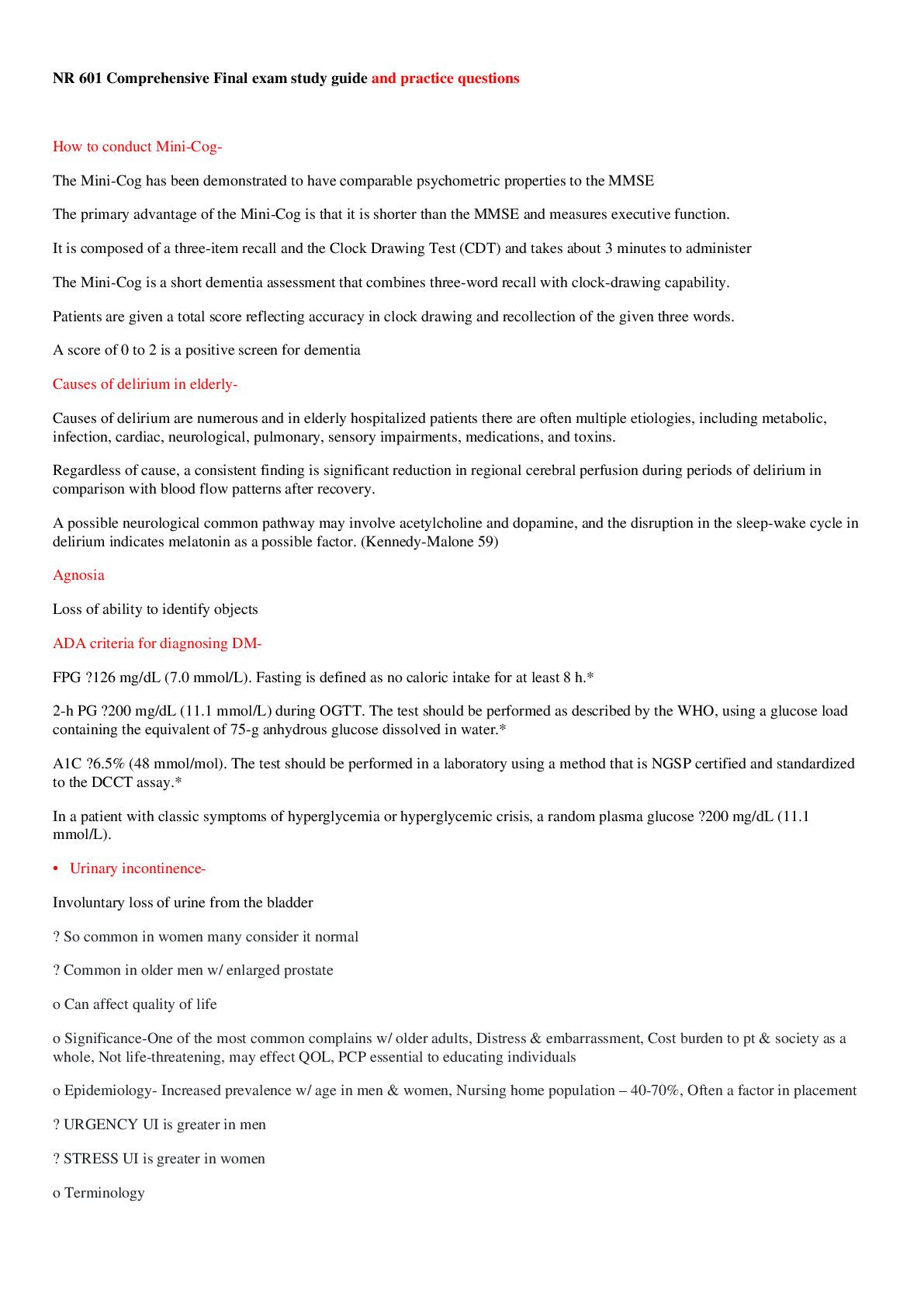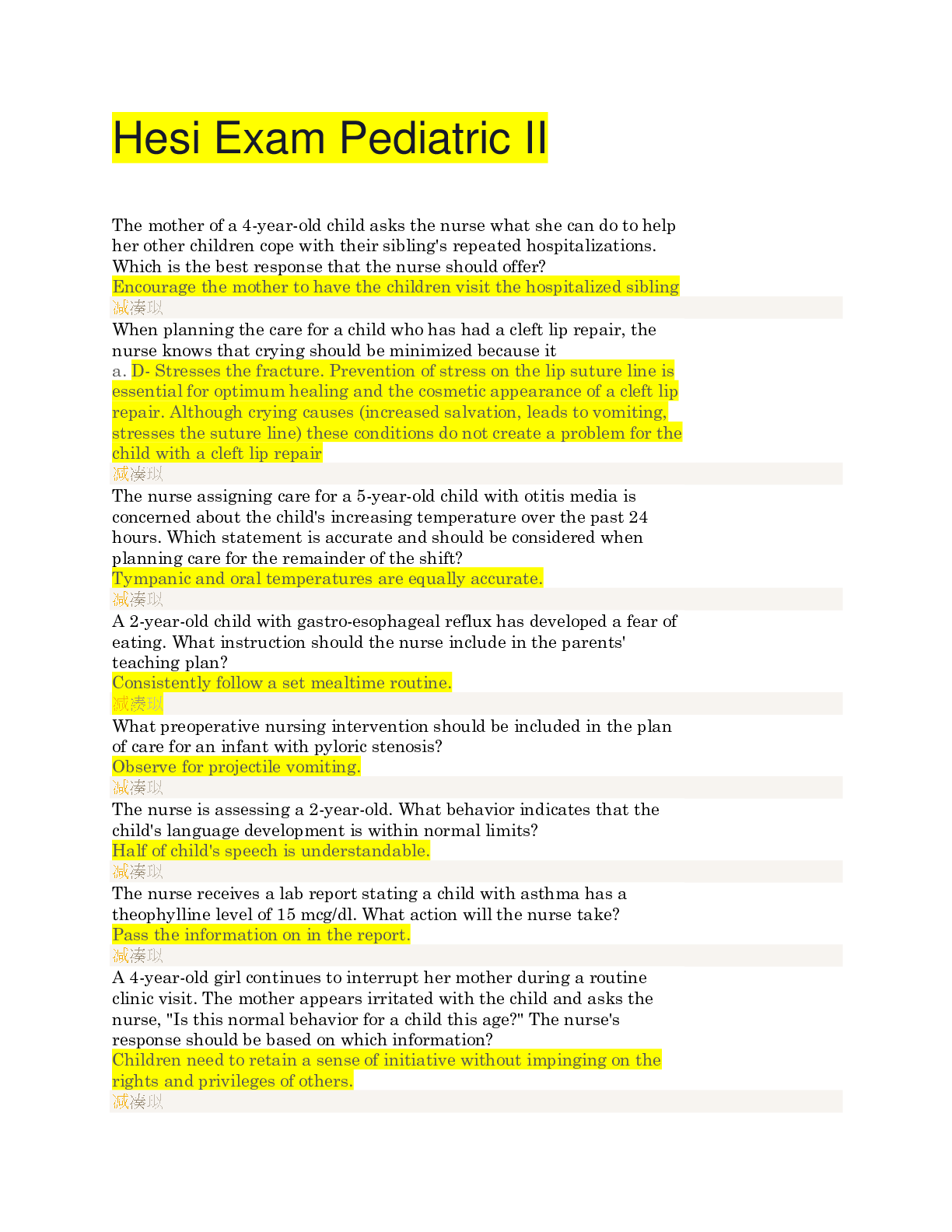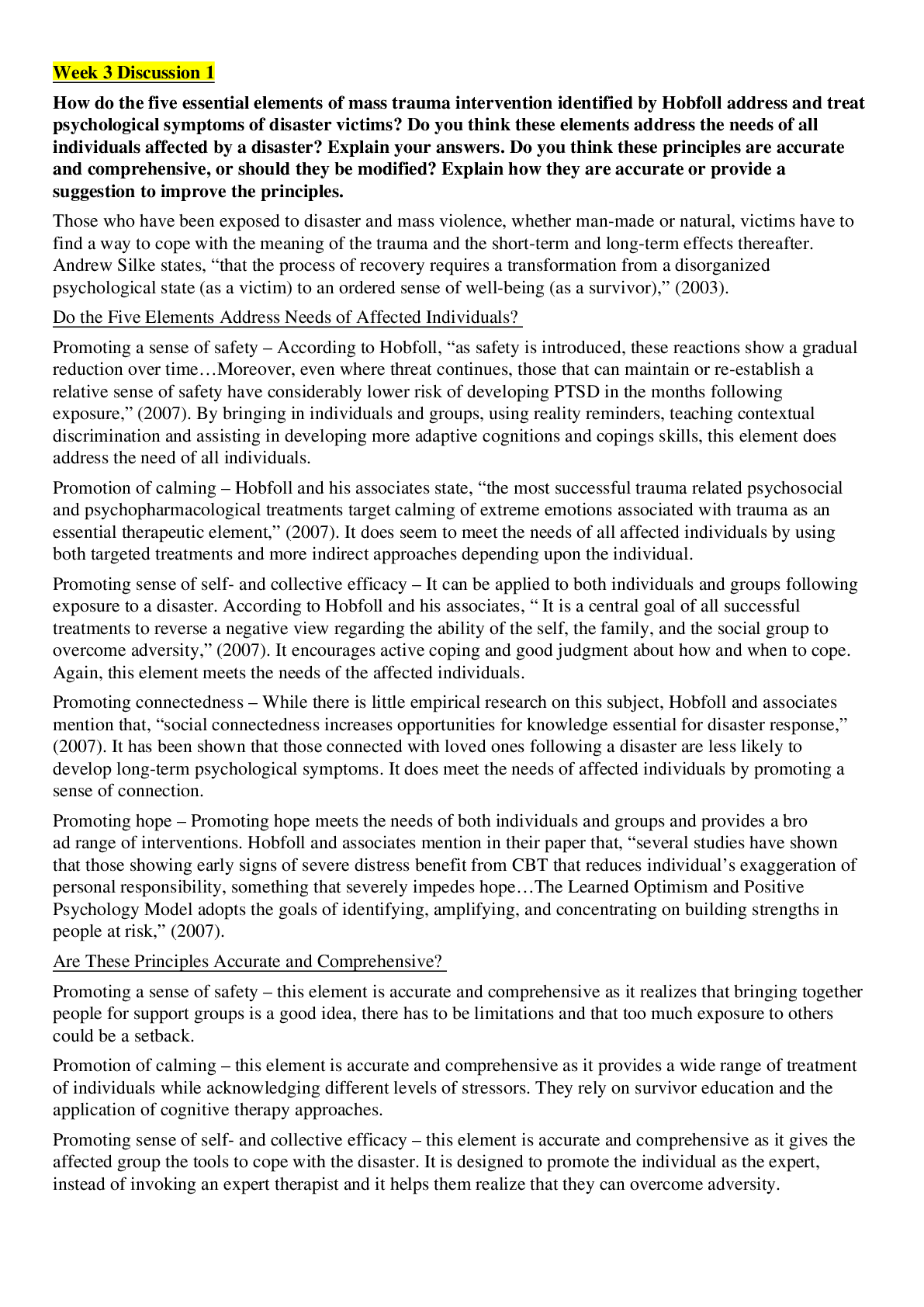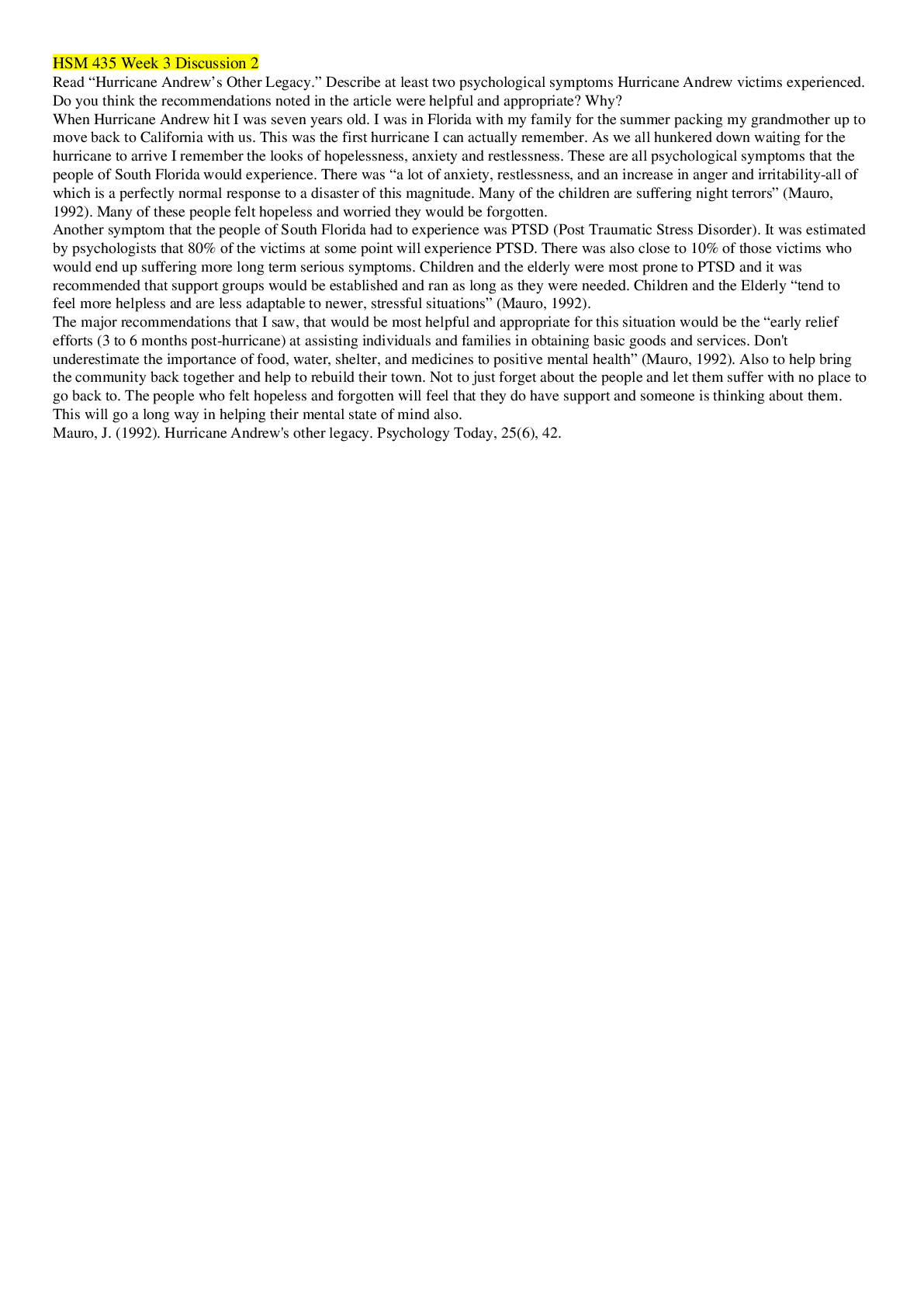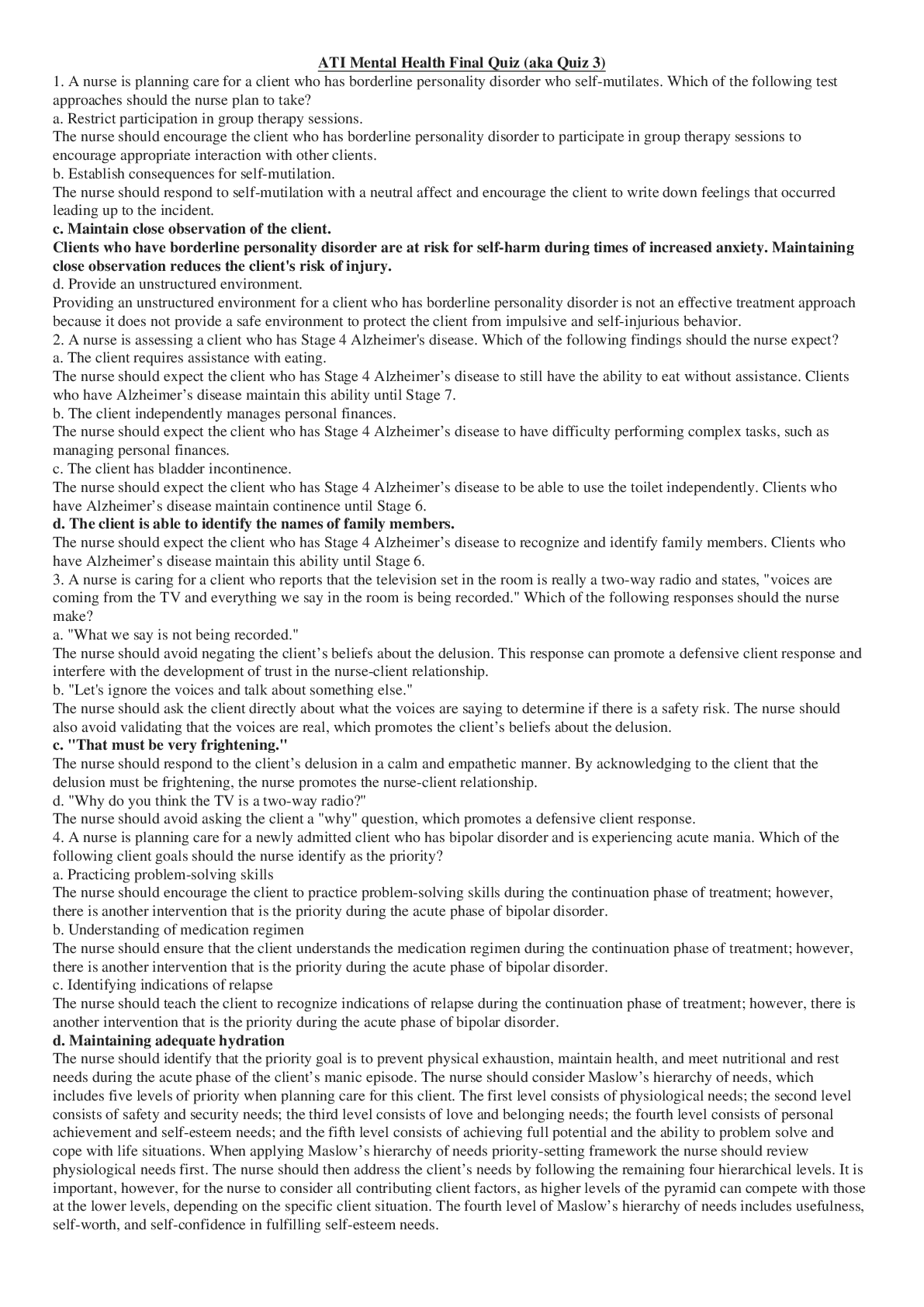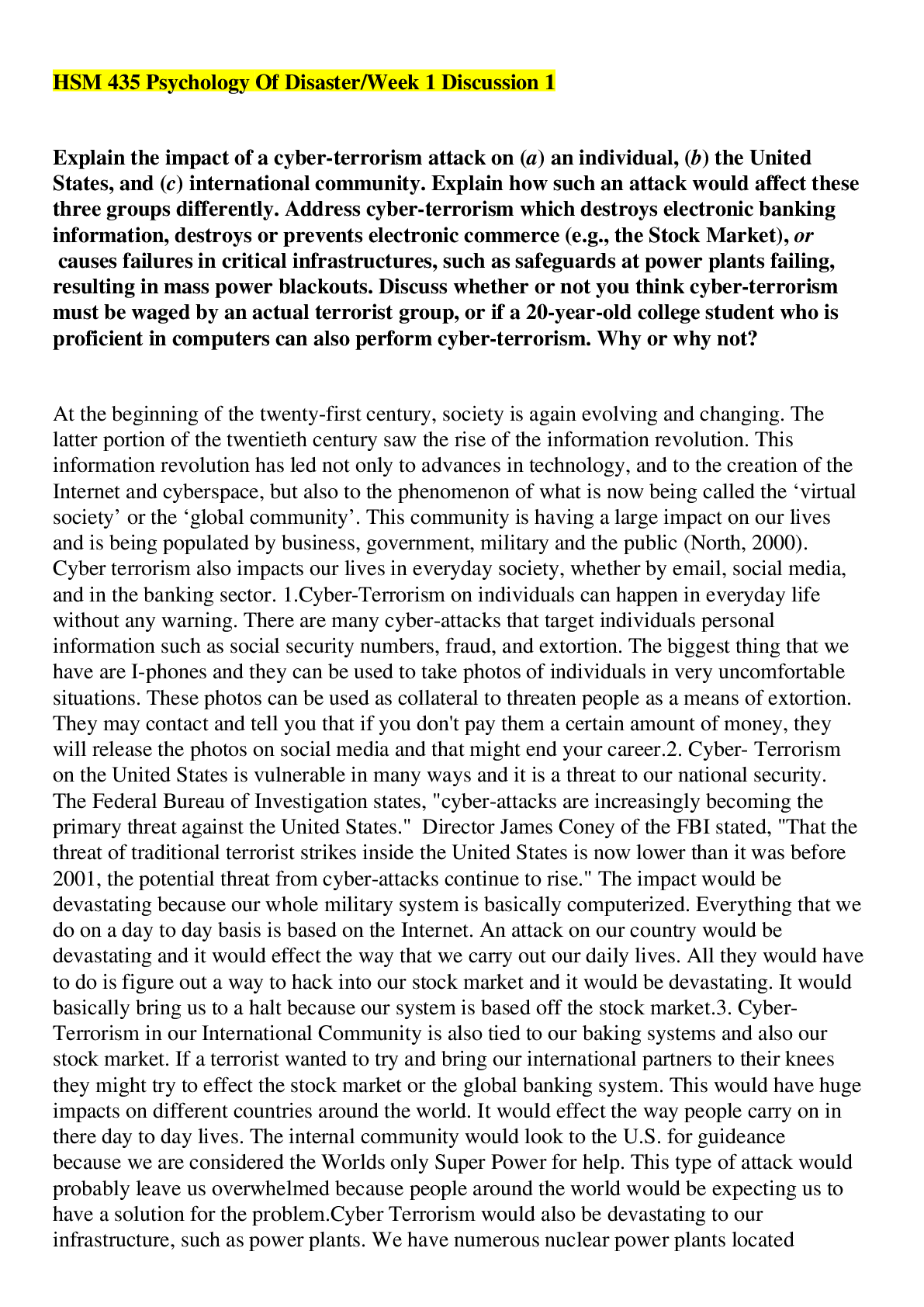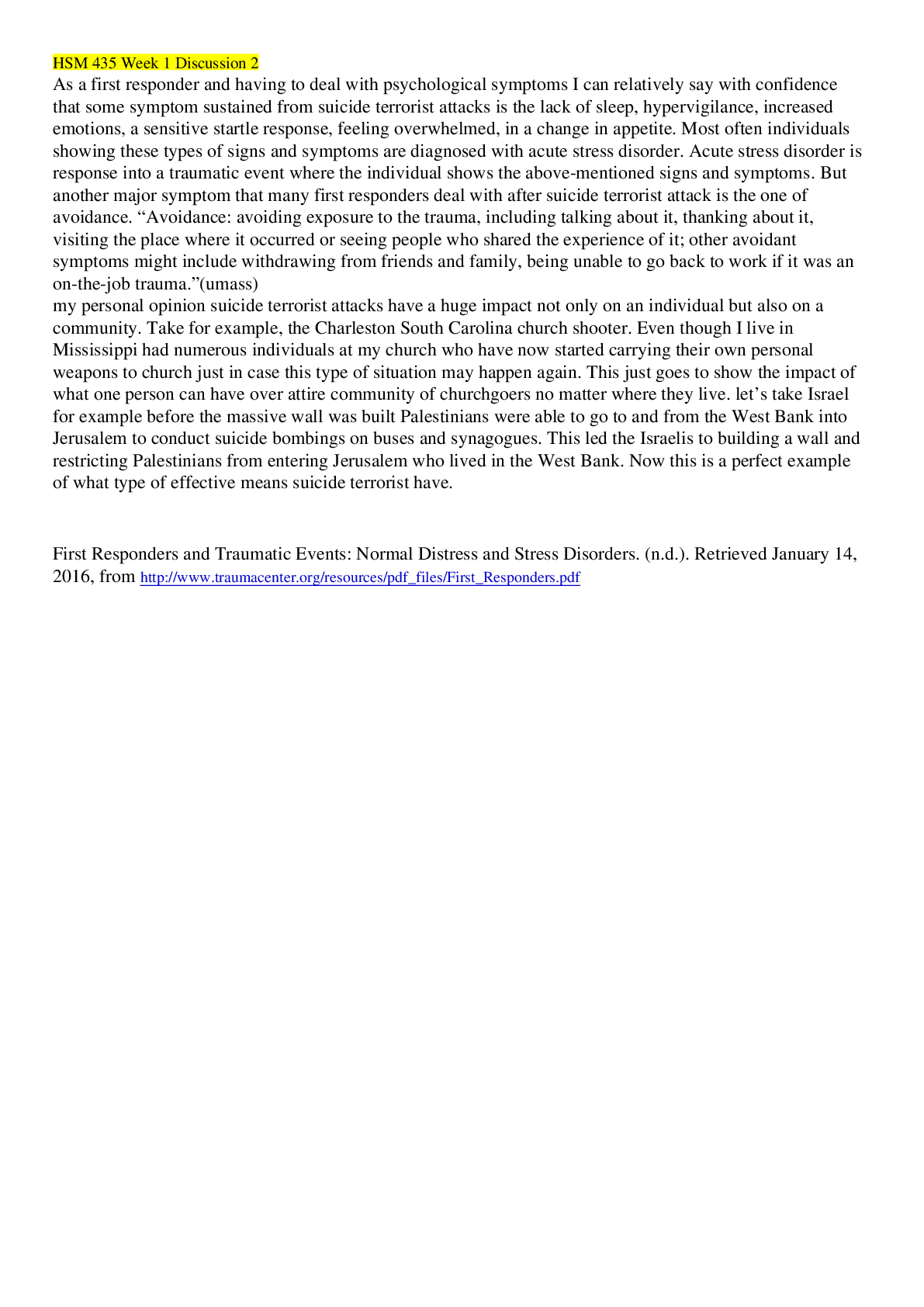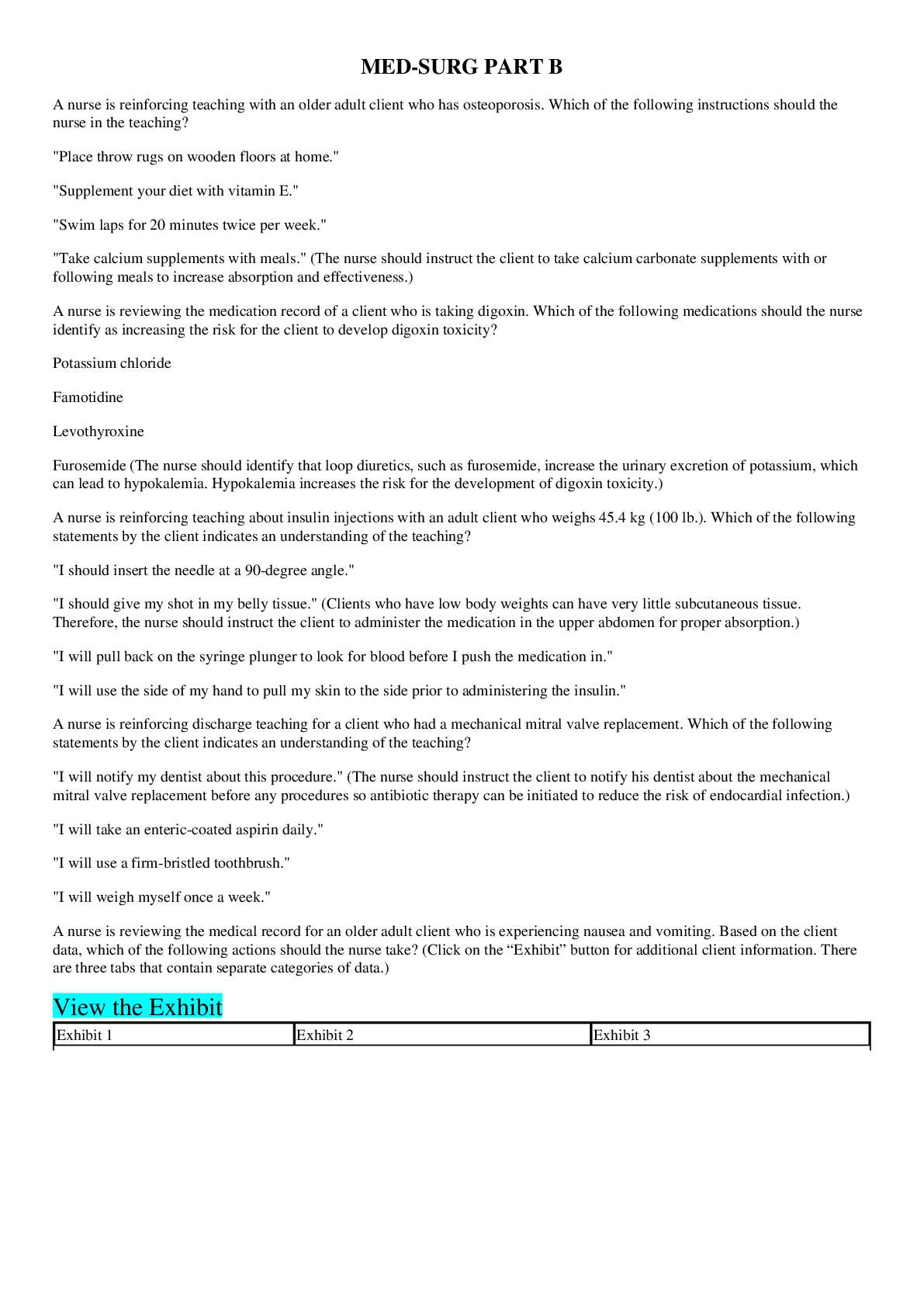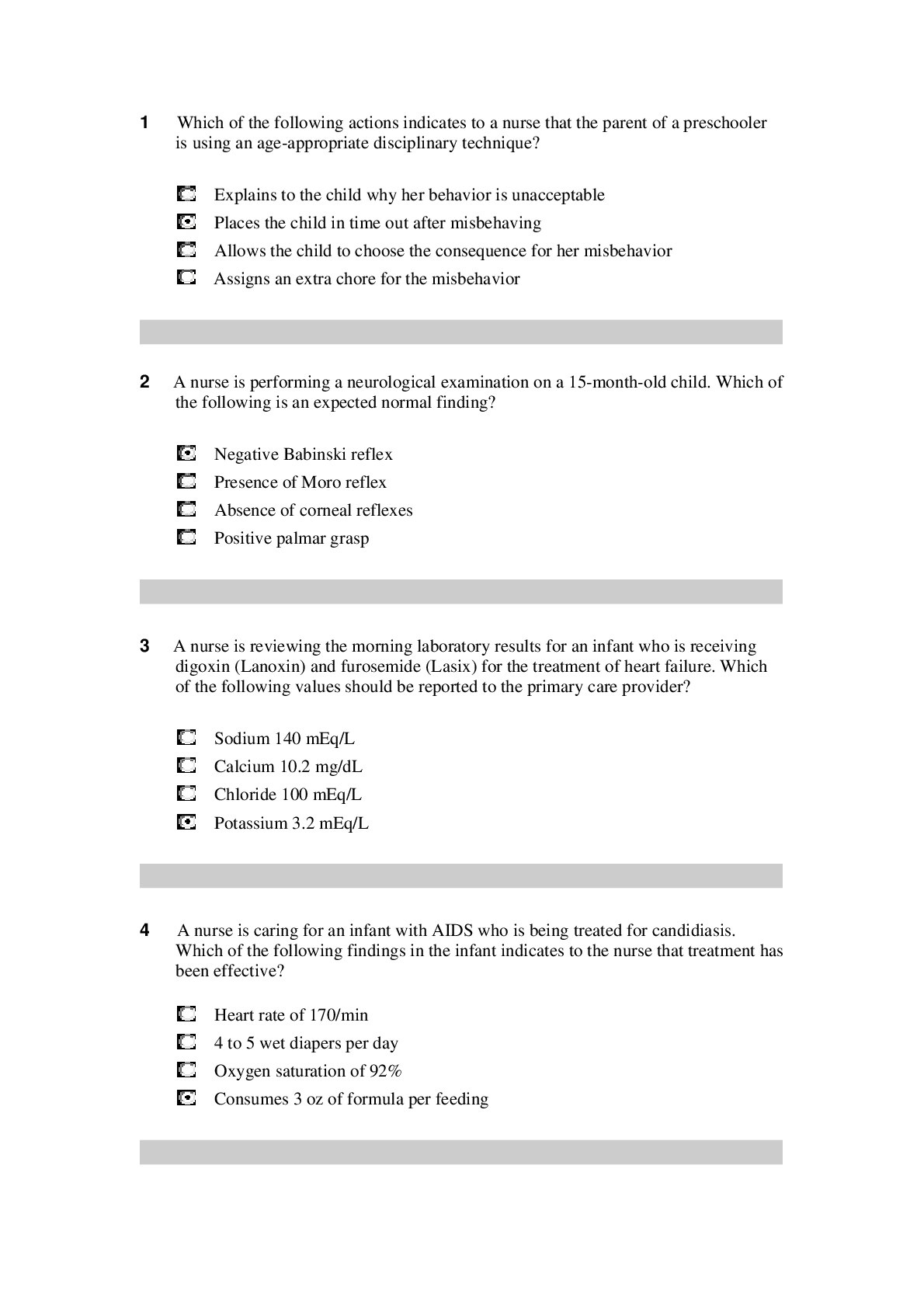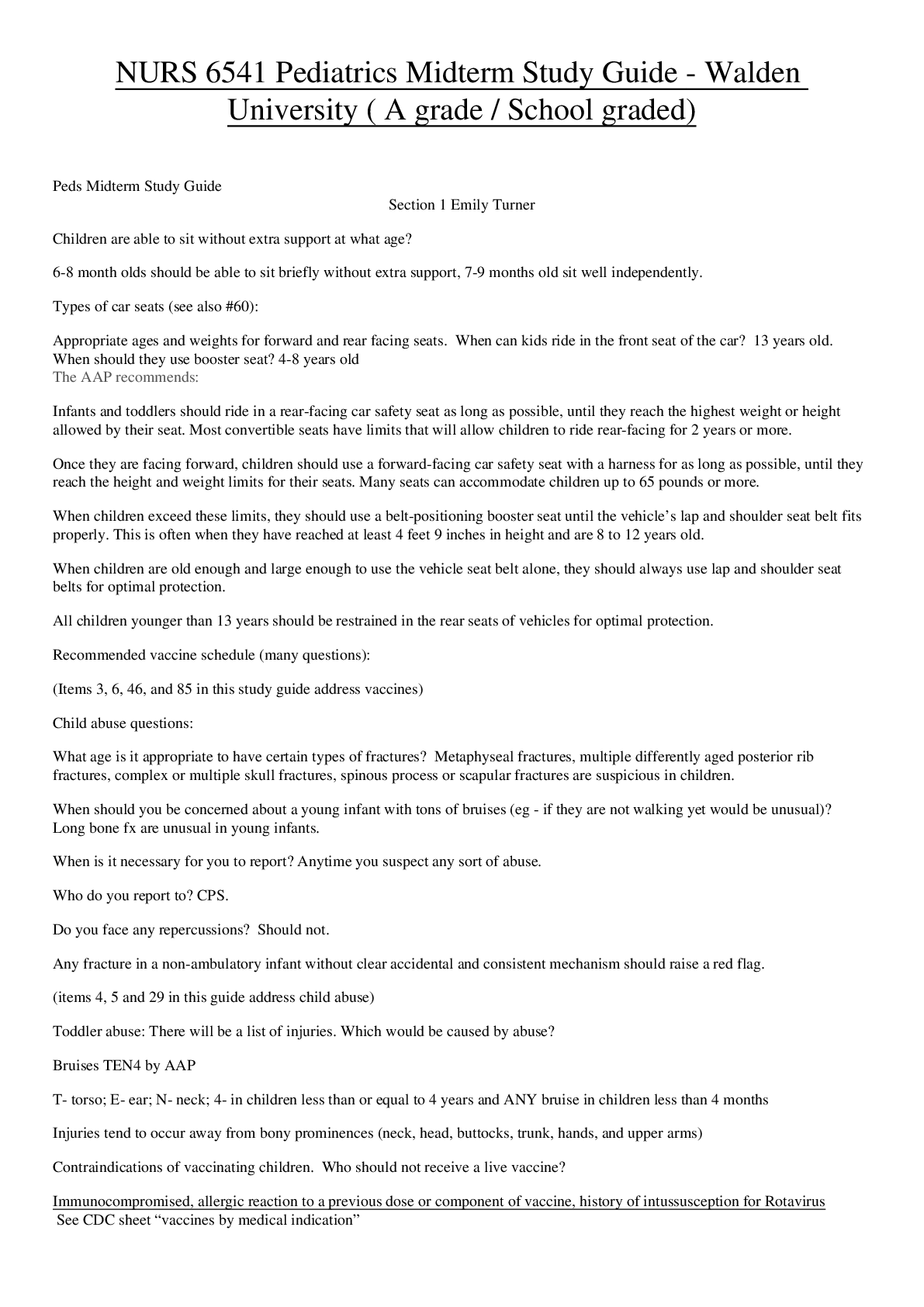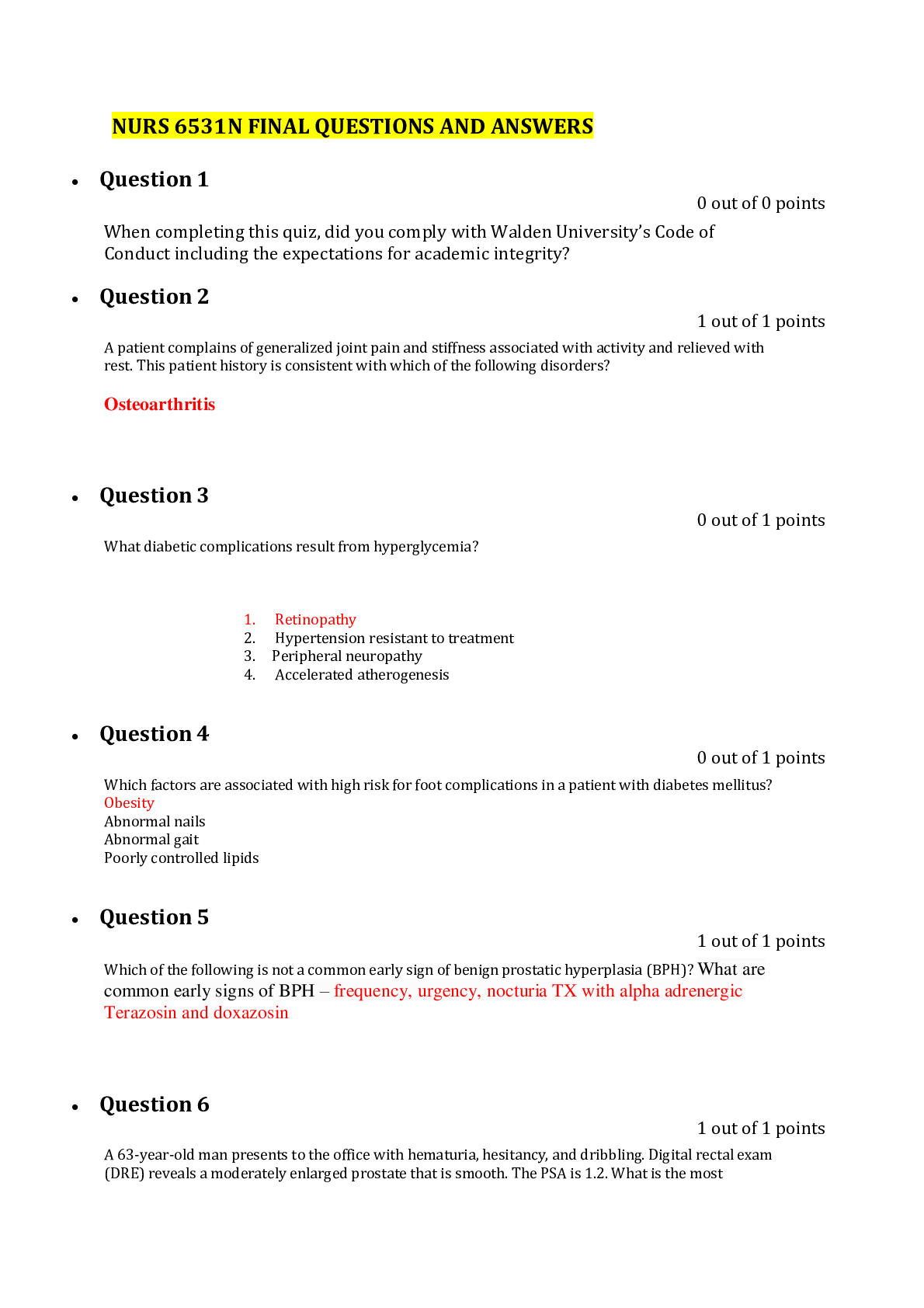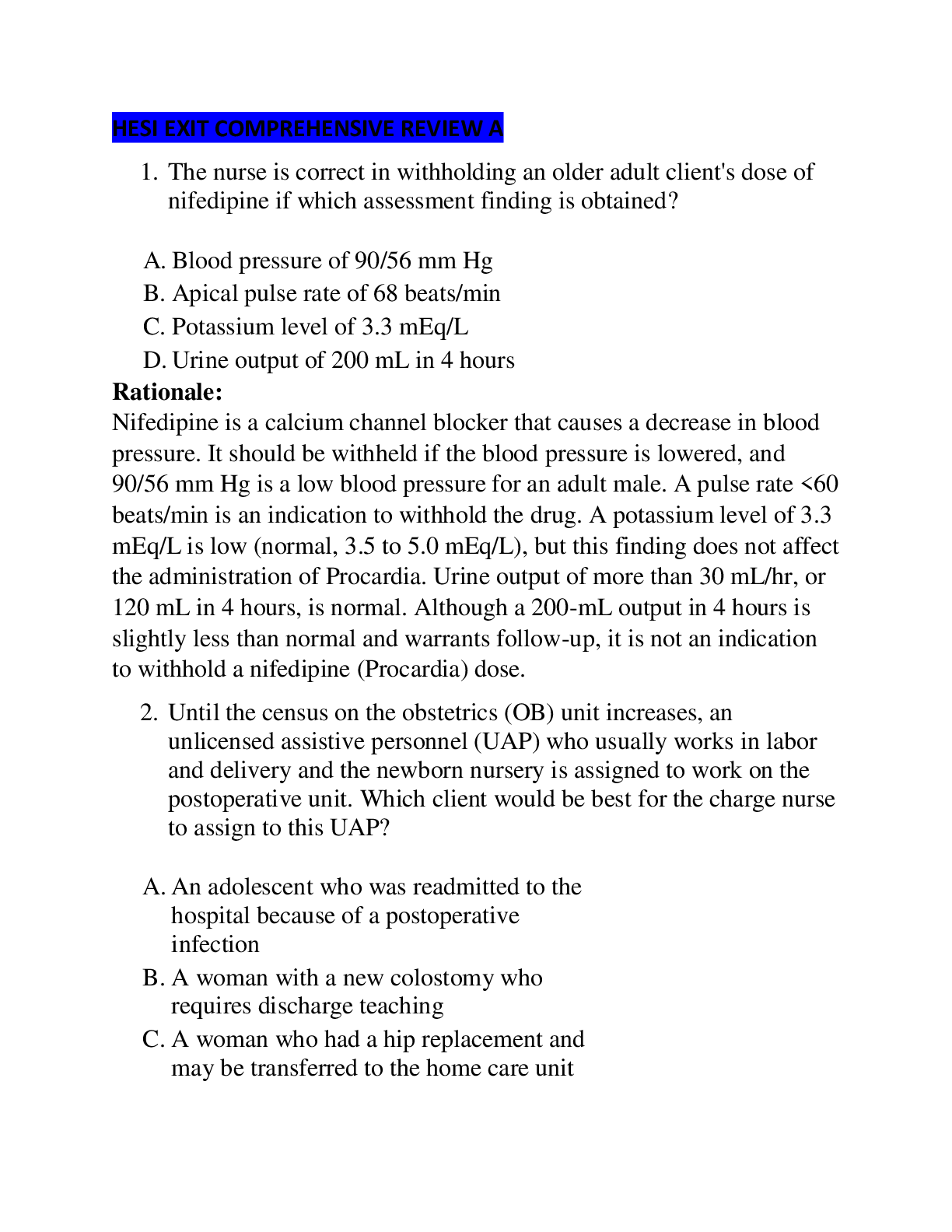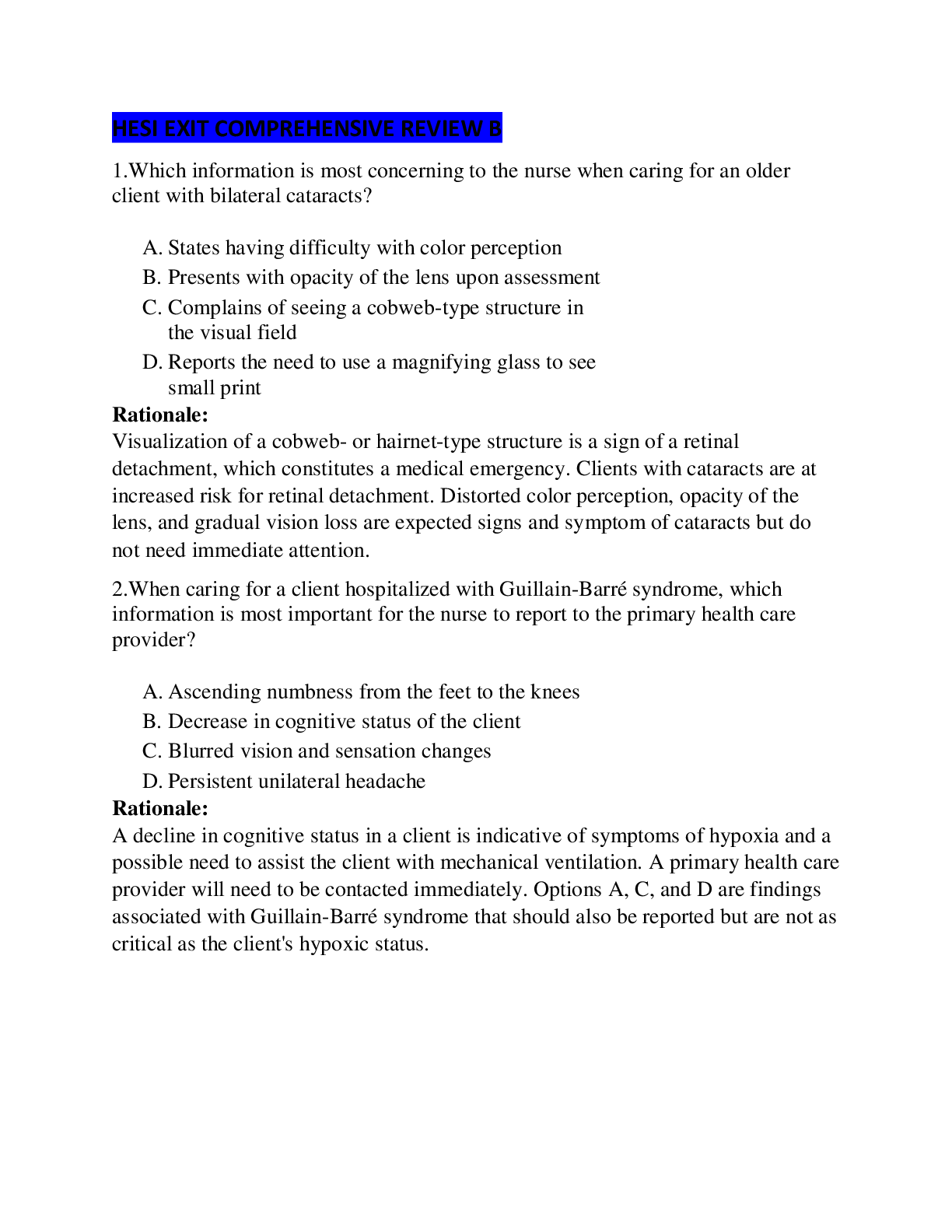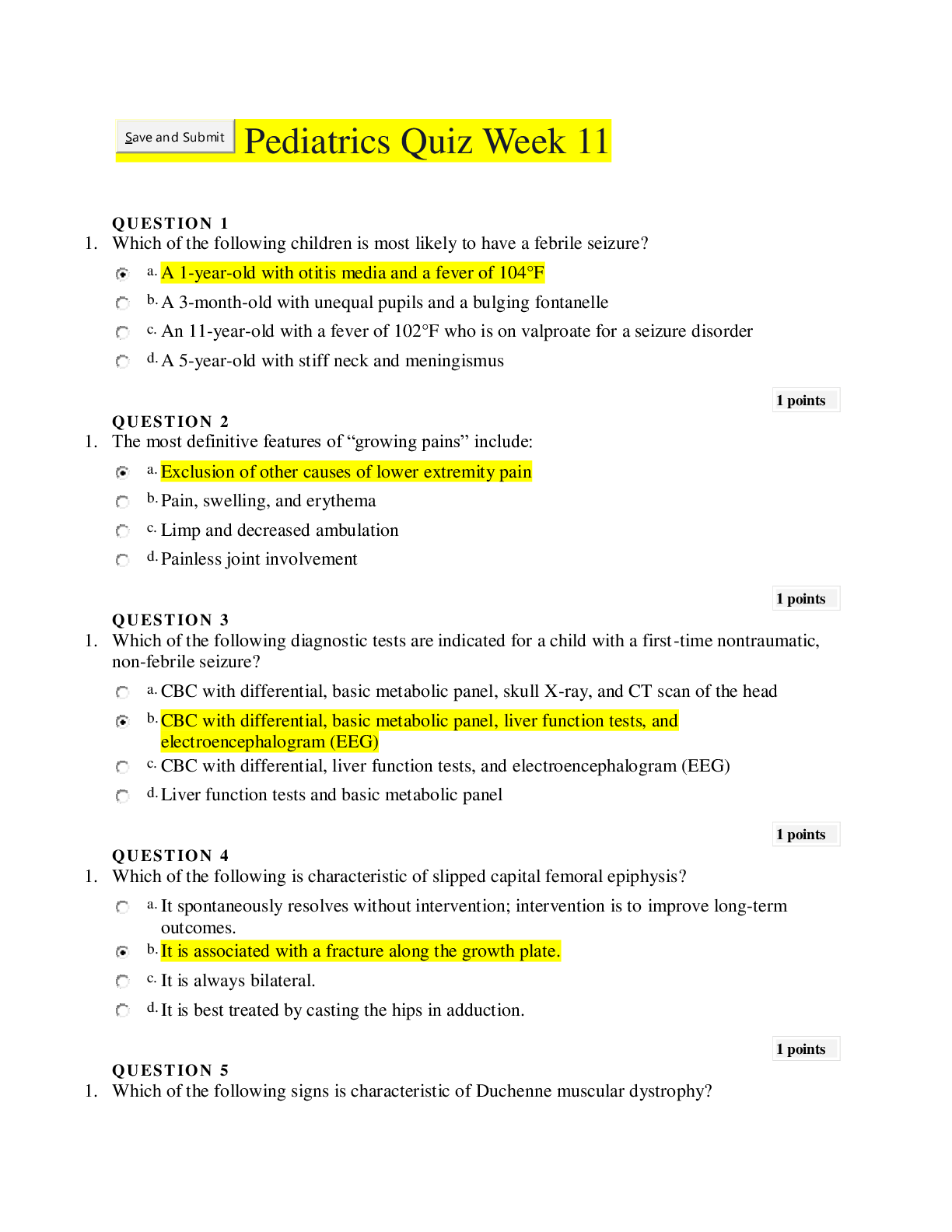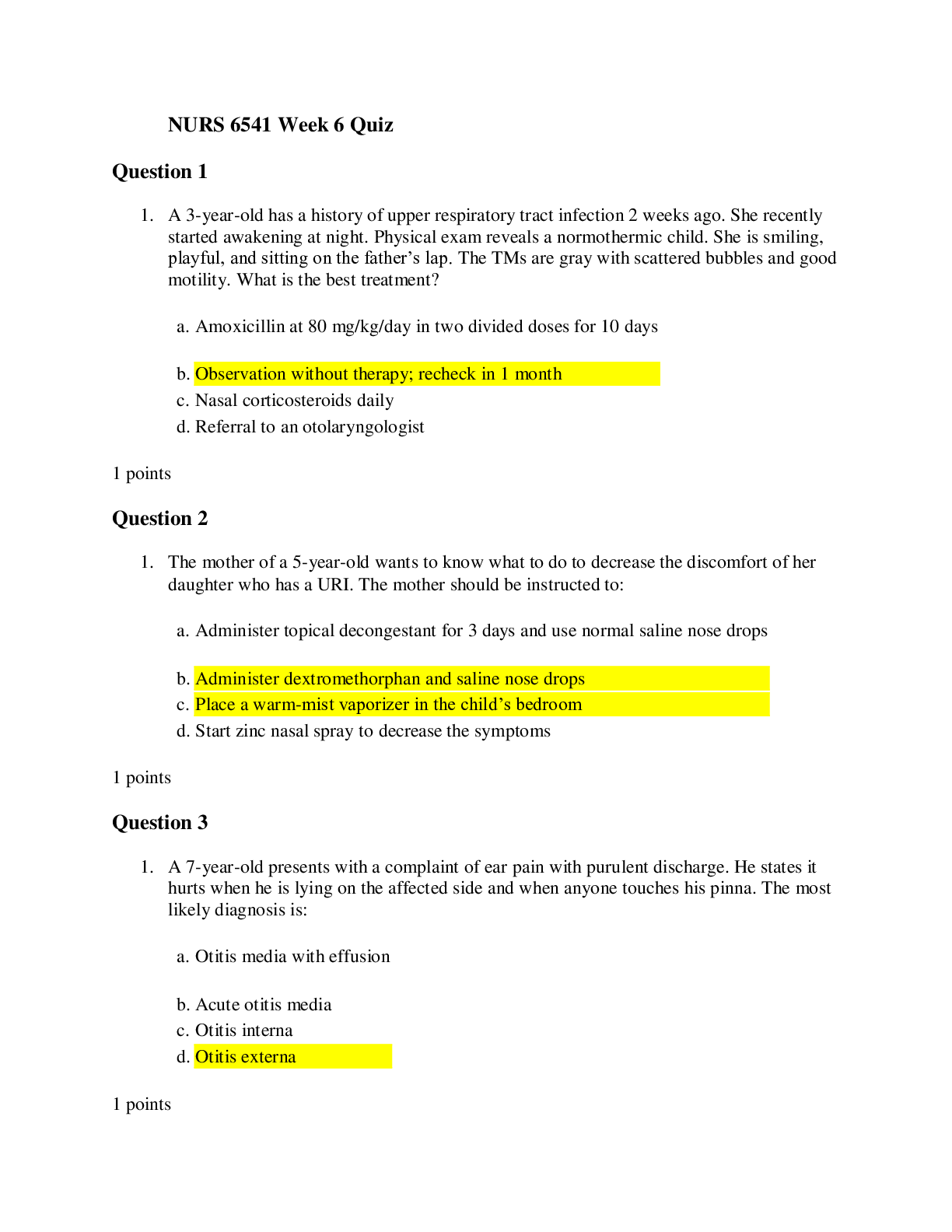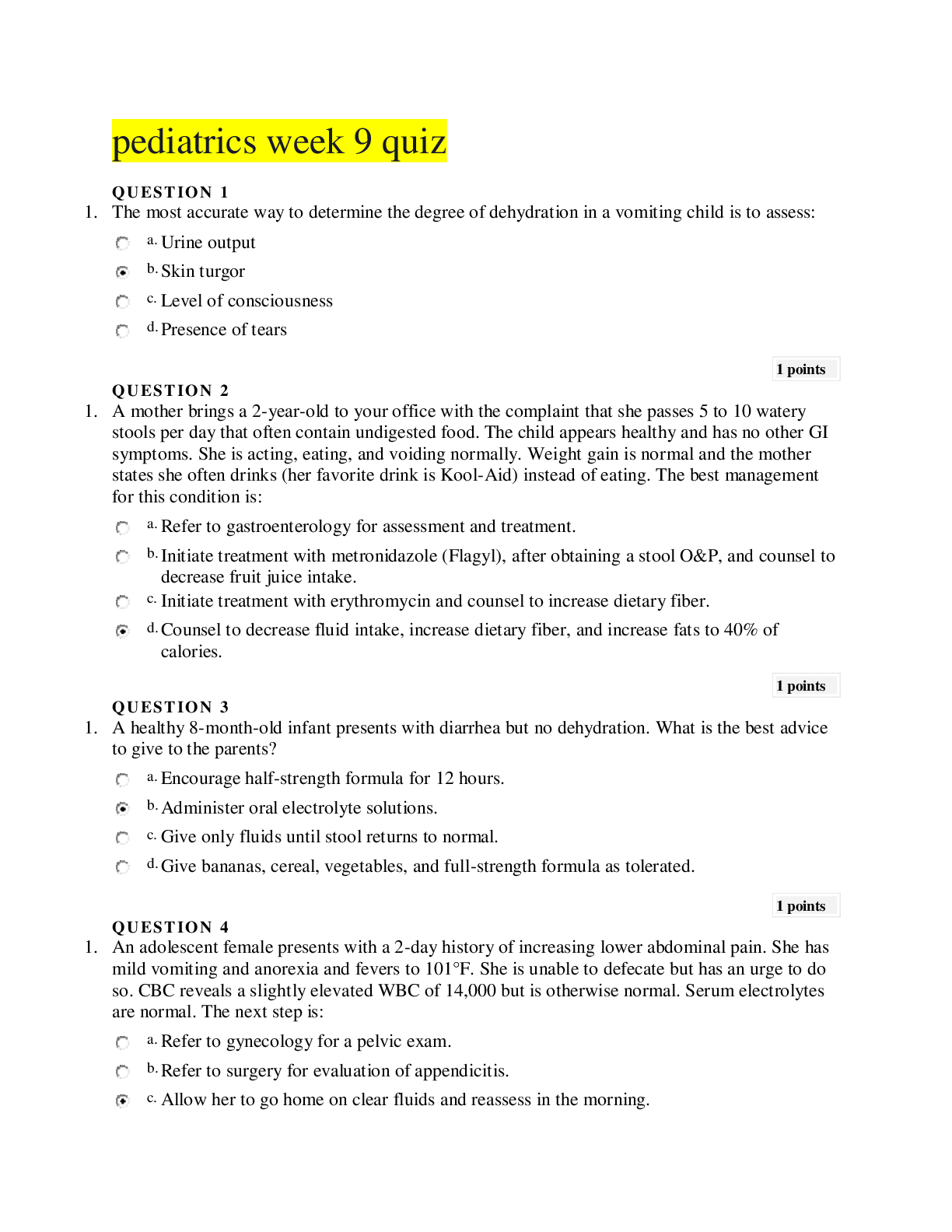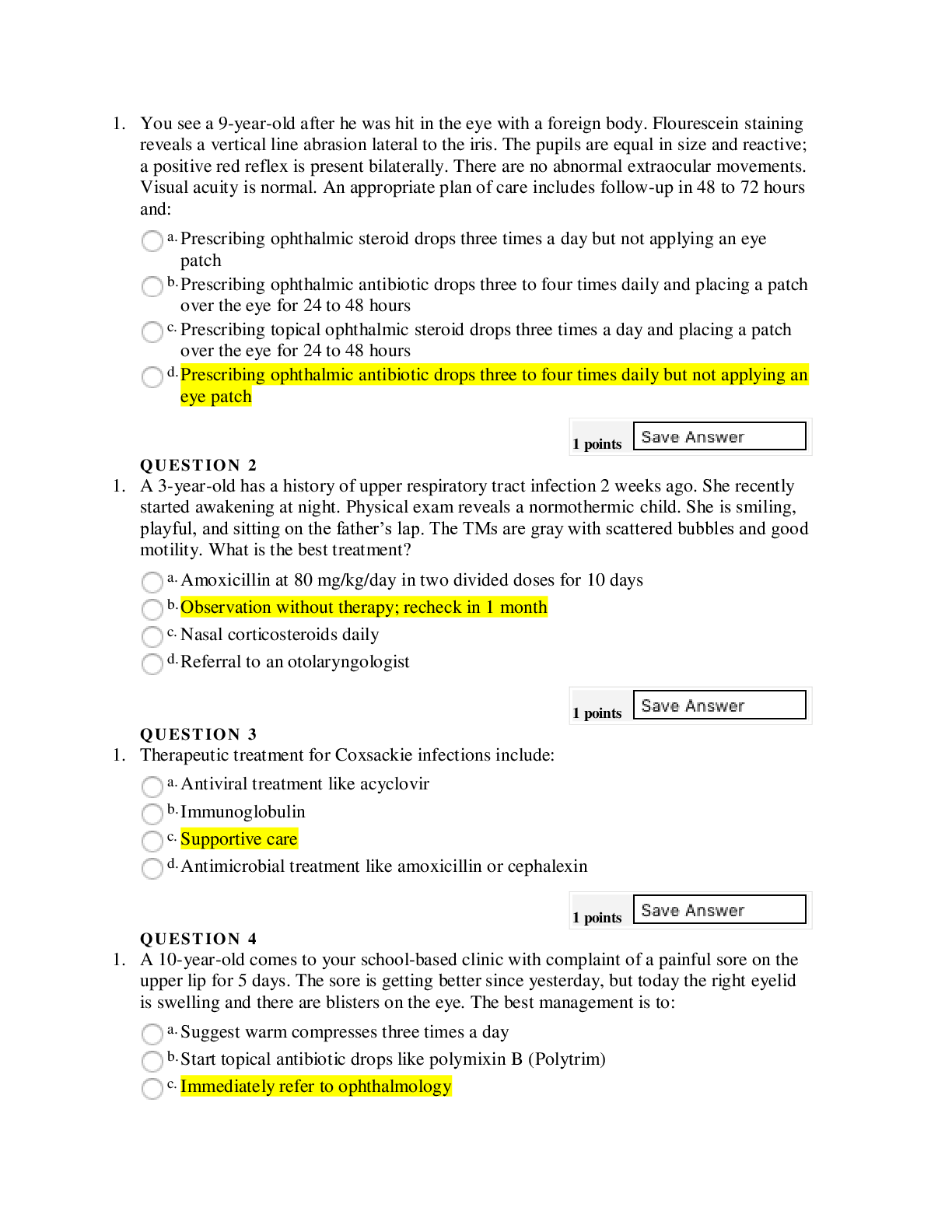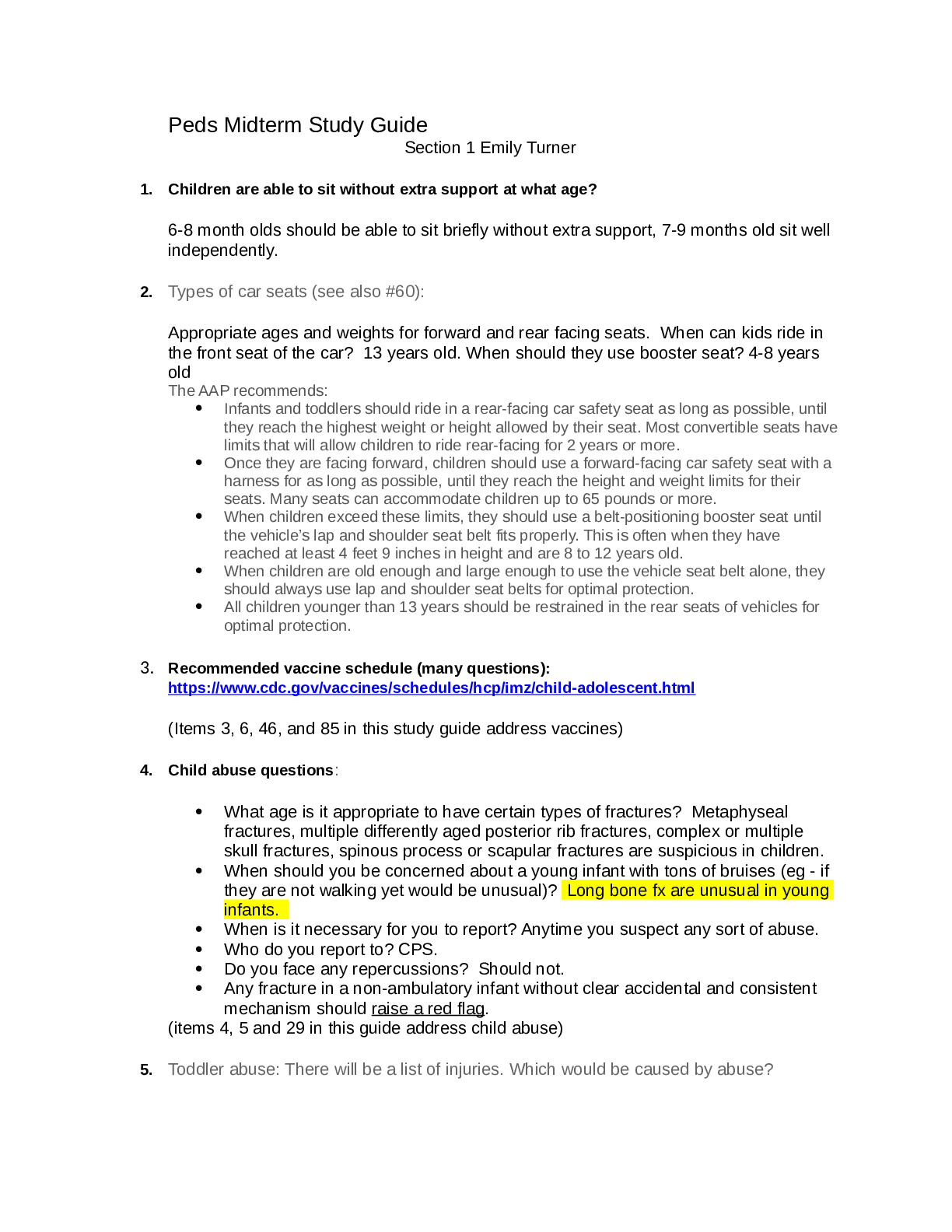*NURSING > STUDY GUIDE > WALDEN UNIVERSITY- NURS 6541 PEDIATRICS QUIZ WEEK 6 QUESTIONS AND ANSWERS/ 100% CORRECT. (All)
WALDEN UNIVERSITY- NURS 6541 PEDIATRICS QUIZ WEEK 6 QUESTIONS AND ANSWERS/ 100% CORRECT.
Document Content and Description Below
• Question 1 0 out of 1 points A 7-month-old male presents with a bulge in the scrotal sac. It is only found in the scrotum and does not seem to bother the child. No difference in size is note... d when the child strains or cries. His scrotum’s size is normal in the morning but increases as the day progresses. The scrotal mass is transilluminable and both testes are located in the scrotal sac. You anticipate: • Question 2 1 out of 1 points A 12-year-old boy awakes with onset of severe, unilateral scrotal pain, nausea, and vomiting. He is afebrile. Inspection reveals a tender scrotum and marked scrotal edema. The most likely cause is: • Question 3 0 out of 1 points The initial evaluation of an asymptomatic child with 1+ proteinuria and 1.020 specific gravity on a random dipstick urinalysis would include: • Question 4 1 out of 1 points A male infant born at 36 weeks gestation has a left testicle palpated in the inguinal canal. At 12 months of age the left testicle has failed to descend. Which of the following is most appropriate? • Question 5 0 out of 1 points When assessing a child with glomerulonephritis, what symptoms would the nurse practitioner anticipate will be present? • Question 6 1 out of 1 points A 4-year-old presents with a chief complaint of pallor. He was well until 1 week ago when he developed bloody diarrhea that improved with oral antibiotics. His blood pressure is 150/100, he is afebrile, and his heart rate is 130 beats per minute. The best test to establish diagnosis is: • Question 7 1 out of 1 points A 10-year-old male has proteinuria in the afternoon but not on first morning void. He probably has: • Question 8 0 out of 1 points After diagnosing a urinary tract infection in a 14-month-old, you note partial fusion of the labia minora that extends for 1 centimeter and obscures the posterior fourchette. There is no evidence of inflammation, although she does have some dysuria. The preferred management of this condition is: • Question 9 1 out of 1 points Vulvovaginitis in a prepubertal child: • Question 10 1 out of 1 points You see a 3-year-old female with dysuria. She is potty trained, febrile, and nontoxic. She has no prior history of UTI. Urine dipstick reveals 1+ leukocyte esterase, 2+ nitrites, 1+ non-hemolyzed blood, pH of 6.0, and specific gravity 1.025. Her vulvovaginal area is slightly red with no discharge. Which of the following treatments is recommended? [Show More]
Last updated: 1 year ago
Preview 1 out of 3 pages
Instant download
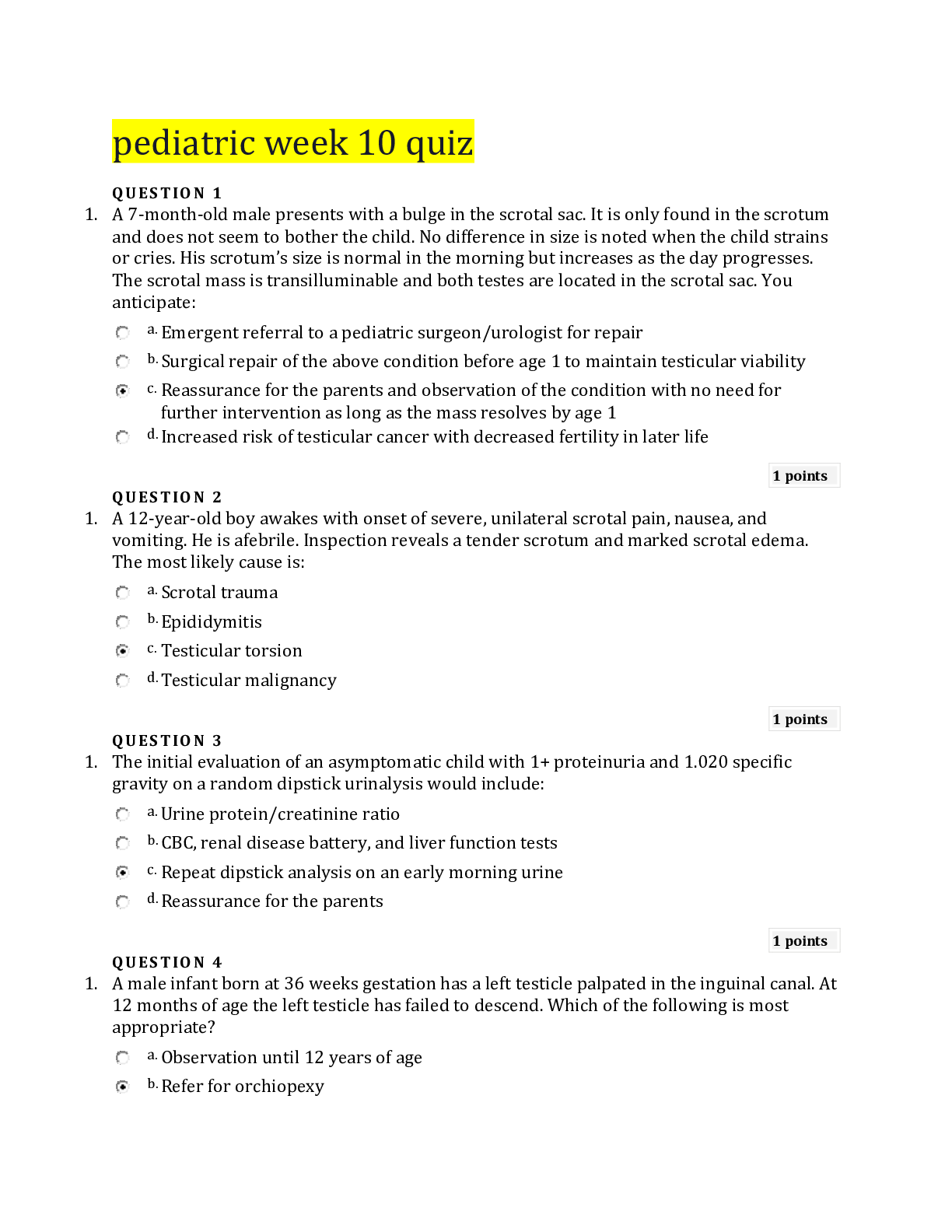
Buy this document to get the full access instantly
Instant Download Access after purchase
Add to cartInstant download
Reviews( 0 )
Document information
Connected school, study & course
About the document
Uploaded On
Jul 30, 2020
Number of pages
3
Written in
Additional information
This document has been written for:
Uploaded
Jul 30, 2020
Downloads
0
Views
51

